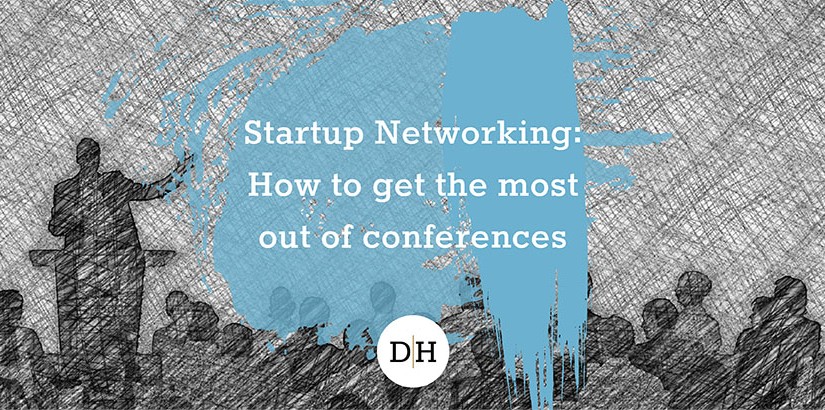I have always been 100% invested in growing my business. The mentality of investing in my professional endeavors has always been an all in, all-or-nothing approach. I always just knew deep down, that the plan of making good money from the companies I built, would always pan out in the end. As a result, I never thought about retirement funds or about really planning for the long-term future. I was never very knowledgable about investing money into anything else except for what I was driving myself. Every penny I have earned has almost always been reinvested into my business. The concept of “safe” investing was something foreign to me.
This all changed when my daughter Emma was on the way.
After that day, I signed up for a term life insurance to cover my wife in case something happened to me. (By the way, a term life insurance plan is very cheap and effective.) Having a child completely shifted my perspective on things like savings, investing, and monetary long-term planning.
Being born and raised in Germany, I did not really know how these systems work in America. So I did some research online and talked to my insurance guy who I did the term life insurance with. In this conversation, things like a 529 and an IRA came up and so, I scheduled a meeting with him.
He came into our meeting with his boss who was crazy pushy, and directing everything towards me signing up for whole life insurance. The whole life insurance program and its returns did not appeal to me in the least, but she continued to push it on me. This was a big contrast to my insurance guy, a very personable and great guy; not pushy at all and someone who readily provides me with a lot of information. Unfortunately, his boss’s hardcore closer-type of salesperson’s behavior really turned me off, since I am looking for a financial CONSULTANT who should put my financial success before his/her own. I wanted someone to really come to understand my financial situation and ideally help me shape my financial goals in a realistic and responsible manner, and not push the product to me where the most commission would be made.
So, I know what you are thinking: “David, what does all of that have to do with determining what type of salesperson I am?” Here’s the thing: This experience reaffirmed why I think it is very important to find the right salespeople for your startup. The wrong one can really hurt your business, and although you may turn a bigger profit in the short-term, you can also be hurting it in the long run. Pushing the wrong sale to wrong people can cost you customers and give your organization a bad name. It’s important that you know which type of salesperson you are, so you’re only weighing on on the conversations where your skills are necessary.
According to this article there are four different types of salespeople: closing, consultive, relationship and display.
- Closing: People who fall in the closing category are usually characterized as extroverted, energetic, competitive and highly self-confident. They usually are a lot more aggressive with costumer contact as they oftentimes start off with nothing. Closing salespeople work really well in promoting new high-tech equipment, high-ticket executive vanity items and pyramid sales.
- Consultive: People who fall in the consultive category are usually career-oriented, team-oriented, and self confident. They usually are patient and aggressive as well. Consultive salespeople do really well in selling in the general IT field, consulting services and law services.
- Relationship: People who fall in the relationship category are usually self-sufficient, cooperative, and have a strong and rigid value system as well as a strong work ethic. Relationship selling relies on the ability to move to a competitor to take business with them. For this reason, local stock brokers, industrial suppliers, and distributors are great for relationship salespeople.
- Display: People who fall in the display category are generalized to have a low career ambition, are easily bored, and impulsive. This type of sales does not require a lot of personal involvement. There is very little risk of personal rejection as they will get paid whether or not the costumer buys the product that they are trying to sell. For this reason, many retail salespeople as well as bank tellers fall into this category; they receive little or no commission.
Here at MaxCDN, we have both a consultative type of salesperson and a closer working together on enterprise deals. This consultant type makes sure he knows the customer’s needs, and if our company and theirs are a good business fit. He scopes out the potentials and then establishes if the customers are interested, and if they can benefit from the services MaxCDN has to offer. If the answer is yes, he then hands off the account to a closer. It is then the closer’s job to negotiate out the price and close the deal. Overall, this sales model is working out pretty well.
So, how do you now pick the right type of salesperson for your startup team? That really depends on what it is exactly that you are selling and if it is B2B or B2C. The bigger question to me is what kind of company do you want to build?
Going back to my insurance story, I cannot see how a whole life insurance plan would make any sense. Buying some berkshire hathaway stocks or investing money into the s&p 500 sounds like a much better option to me. It feels like that the only person who really benefits from the whole life insurance deal, is the person that sells it.
I could not operate like this, even if it would mean making a lot more money for me. I would not do this because I want to turn my customers into advocates for my product. Word of Mouth is the most powerful marketing tool there is, especially in this current social media era.
A great example for word of mouth and putting the customers needs before yours is my car mechanic. I do not really care too much about cars, so it would have been easy to sell me on more expensive repairs. My mechanic however, often find ways to fix my car without having to buy new parts and even did a few things free of charge. As a result, I have sent him probably 20 referrals by now and everyone that has gone to him, loves him. He does not have to spend a large amount of money on advertising his business and yet, he is always busy.
Another example is Zappos. I read somewhere that if Zappos does not have the shoes that you want or your size, they will send you the links to other competitors that have the shoes in stock. Take note of #2 on this post. It essentially came to the same conclusions about Zappos. This is great because it shows that Zappos really does have their customer’s best interest in mind, and people love it.
I am obviously in favor of my car guy’s and Zappo’s approach; which sales style works for you?




